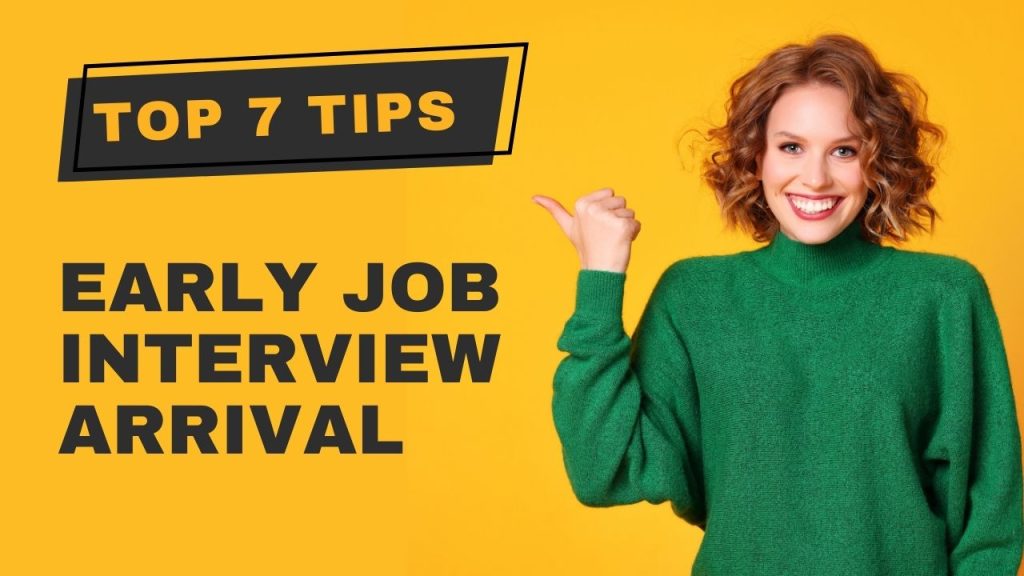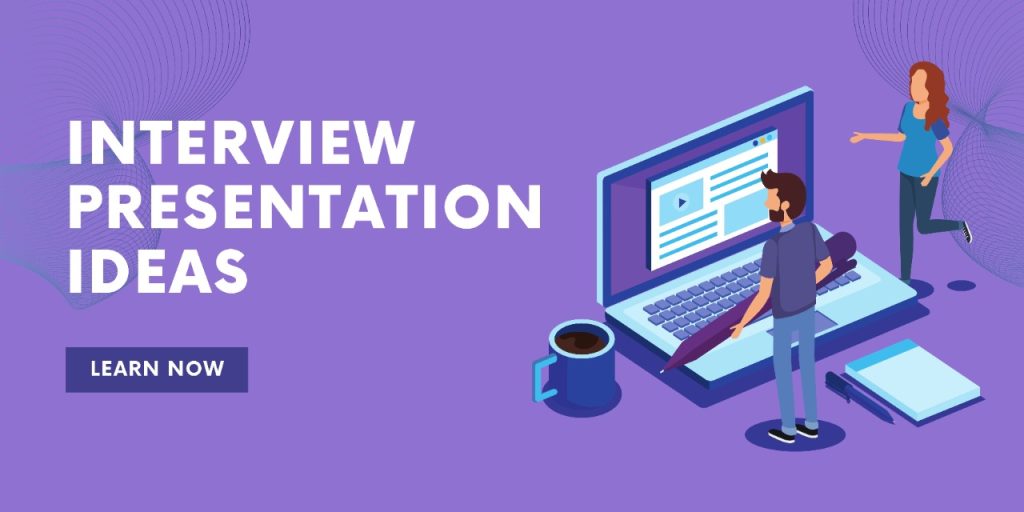Early Job Interview Arrival
Being on time for the job interview is the key to making the right first impression and showing enthusiasm for the position. Here are some tips for arriving early to an interview:
- Plan your route: Make sure you know exactly how to get to the interview location and allow extra time in case of traffic or other unexpected delays.
- Leave on time: Give yourself sufficient time to get to the interview, especially if you’re unfamiliar with the area or using public transportation. It’s better to arrive early than to risk being late.
- Use the extra time to prepare: If you arrive early, use your spare time to review your resume and the job posting, practice your answers to common interview questions, and mentally prepare yourself for the interview.
- Stay calm: If you arrive early and have to wait, try to stay calm and avoid pacing or fidgeting. This will help you stay focused and confident during the interview.
Is It OK to Arrive 20 Mins Early to Interview?
Yes, arriving 20 minutes early for an interview is generally OK. This gives you plenty of time to find parking, use the bathroom, and mentally prepare for the interview.
However, it’s crucial to be conscious of the interviewer’s schedule and arrive early enough, as it can be disruptive or inconvenient for them. If you come more than 20 minutes prior, it is a good idea to find a nearby coffee shop or park and wait until closer to the scheduled interview time.
What Should I Do 1 Hour Before an Interview?
Here are the things you can do one hour before an interview to prepare:
- Review your resume and the job posting: Make sure you know your experience and qualifications and how they relate to the job you’re applying for.
- Practice your answers to common interview questions: Review common interview questions and practice your responses to help reduce nervousness and increase confidence.
- Gather any documents you need: Make sure you have copies of your resume, reference list, and any other documents the interviewer may ask for.
- Dress accordingly: Choose an outfit that is professional and appropriate for the company culture and position you’re applying for.
- Check your appearance: Make sure you’re well-groomed and that your appearance is neat.
Arriving 30 Minutes Early to an Interview
Arriving 30 minutes early to an interview may be too early, as it can be disruptive or inconvenient for the interviewer. It’s generally best to aim to arrive 5-10 minutes early for an interview. This gives you enough time to get to the interview location, use the bathroom, and mentally prepare for the interview.
What Do You Do When You Arrive at the Interview?
When you arrive at the interview, there are a few things you should do to make a good impression:
- Greet the interviewer with a solid handshake and a smile: This shows that you’re confident and professional.
- Make small talk: Engage in small conversations with the interviewer to build rapport and show that you’re a likable person.
- Wait patiently: If you arrive early and have to wait, stay calm and avoid pacing or fidgeting. This will help you stay focused and confident during an interview.
How Early Should You Arrive for a Zoom Interview?
It’s generally best to aim to arrive 5-10 minutes early for a zoom interview. This gives you enough time to settle and ensure your gadgets are working correctly. It’s essential to be on time for a zoom interview, as the interviewer may not have time to wait for you if you’re late.
What Is the Key to a Successful Interview?
Many characteristics according to a successful interview include preparation, confidence, and professionalism. Here are a few critical tips for acing an interview:
- Do your research: Make sure you know everything there is to learn about the organization and the role you’re applying for. This will allow you to tailor your answers to the interviewer’s questions and demonstrate your enthusiasm for the job.
- Be punctual: Arriving on time (or slightly early) to the interview shows that you’re reliable and respectful of the interviewer’s time.
- Be prepared to ask questions: Asking thoughtful questions shows that you’re interested in the job and the company.
- Be confident: Show the interviewer that you’re the right person for the job by presenting yourself confidently and being comfortable with your skills and experiences.
- Be professional: Remember to use proper business etiquette, such as shaking hands and making eye contact, to show that you’re a professional and respectful candidate.
What should a candidate bring to an interview?
There are a few essential items that a candidate should bring to an interview:
- Resume: It’s essential to bring a copy of your resume to the interview, as the interviewer will likely want to refer to it during the conversation. Make sure your overview is up-to-date and error-free.
- Cover letter: If you submitted a cover letter with your application, it’s a good idea to bring a copy to the interview. This will show the interviewer that you’re organized and prepared.
- Reference list: It’s a good idea to bring a list of references to the interview, as the interviewer may ask for them. Include the names, titles, and contact information of at least three professional references who can speak to your skills and experiences.
- Portfolio: If you have a portfolio of your work (e.g., design projects, writing samples, etc.), it can be helpful to bring it to the interview to showcase your skills and accomplishments.
- Notepad and pen: It’s a good idea to bring a notepad and pen to the interview to take notes and jot down any questions you may have.
- Questions: Make a list of questions to ask the interviewer to demonstrate your enthusiasm for the job and the company
- Water bottle: It’s a good idea to bring a water bottle to the interview to stay hydrated, as it can help you stay focused and avoid a dry mouth.
- Extra copies of your resume and reference list: It’s always a good idea to bring additional copies of your resume and reference list, as the interviewer may want to share them with other team members or HR.
Where should you focus while giving an interview?
There are a few key areas where you should focus while giving an interview:
- Preparation: Make sure you’re well-prepared for the interview by researching the company and the position, practicing your answers to common interview questions, and bringing any necessary documents.
- Confidence: Show the interviewer that you’re the right person for the job by presenting yourself confidently and being comfortable with your skills and experiences.
- Professionalism: Remember to use proper business etiquette, such as shaking hands and making eye contact, to show that you’re a professional and respectful candidate.
- Communication: Clearly and concisely communicate your skills, experiences, and qualifications to the interviewer, and be sure to listen carefully to their questions and respond thoughtfully.
- Interest in the job: Show the interviewer that you’re enthusiastic about the job and the company by asking thoughtful questions and demonstrating your enthusiasm for the position.
- Fit with the company culture: Tailor your responses to the interviewer’s questions and emphasize how your skills and experiences align with the company’s values and culture.
- Problem-solving skills: Share examples of how you’ve solved problems or faced challenges in the past to show the interviewer that you’re a proactive and resourceful candidate.



